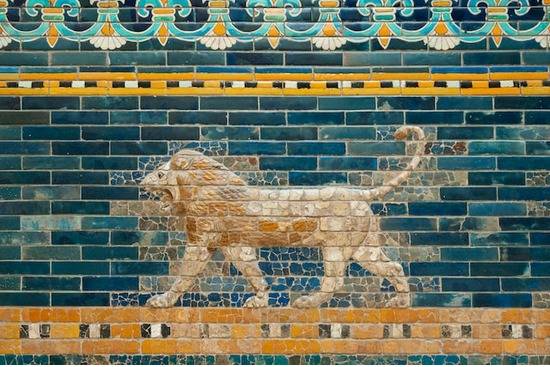Jesus and the Woman at the Well: Breaking Down Barriers
A Samaritan woman, empty pail in hand, makes her way to the well near the town of Sychar.
It’s the hottest part of the day, so she’s alone. She isn’t joined by the usual crowds of women who chatter and enjoy one another’s company at the well in the cool of the morning or evening.
This day, though, she won’t be completely alone.
John 4:4 tells us that Jesus Christ “had to” go through Samaria that day. Why did He take this route—one that most Jews would’ve avoided because they didn’t want to be in contact with the Samaritans? He could’ve taken at least two other routes—along the coast or through the Jordan Valley.1
And yet, He didn’t. John 4:4-42 details how Jesus chose to go through Samaria, interact with a woman at Jacob’s well, and reveal Himself as the Messiah.
In doing these things, He was seeking to break down barriers of bitterness and bring hope and eternal life to a woman who had gone through deep relational struggles.
Let’s explore more about Jesus through His interaction with her. We’ll cover:
- Who was the woman at the well?
- Why did it surprise her that Jesus spoke to her?
- How Jesus approached her
First, a little background to this story.
Who was the woman at the well?

Photo by Dmitriy Ganin
The Bible doesn’t provide many personal details about the woman at the well. She’s only mentioned in this one story in the Gospel account of John. We don’t even know her name, but we do know that she was of the Samaritan people. And we know she was in a difficult situation in life.
One hint into her situation is the fact that she went to the well at the sixth hour, or noon (based on how people then calculated time).2 “Morning and evening were the usual times for drawing water,”3 so what prompted her to go there in the heat of the day when no one else would be there?
Was she trying to avoid the stares and whispers of other women in town?
Did she feel ashamed or judged by them?
The Bible doesn’t say.
However, in the course of her conversation with Jesus, she shared that she’d been through incredible heartbreak and relational challenges. She’d had five husbands, and the man she was currently with wasn’t her husband.
Back then, going through five marriages wouldn’t have been within the woman’s control. “Only husbands could get a divorce, abandon their families, and kick out their spouse.”4
If this had happened, it would’ve left her in a vulnerable situation.
Whether her husband had divorced her or died, she would’ve turned to a father, brother, or adult son for support. If she didn’t have any of those, she had no choice but to find another man to marry.5 And another…
As Kendra Valentine, PhD, a professor of New Testament studies, points out, “going through this experience five times is tragic beyond words.”6
Had these painful experiences led the woman to now live with a man who wasn’t her husband? Did her attempts to cope lead her to sinful and unhealthy decisions?
Again, we don’t know for sure.
But what we do know is that when Jesus encountered her, her life had been a chain of difficult circumstances.
Why did it surprise the woman that Jesus spoke to her?

Photo by Corbin Mathias on Unsplash
Jesus broke cultural and societal norms by speaking to the Samaritan woman. For one, He showed that He wasn’t bound by the bitterness that Jews had toward Samaritans. Second, He didn’t allow the fact that she was a woman to stop Him from speaking to her in public—something that Jewish men (especially rabbis) usually avoided.
We see the Samaritan woman’s surprise in her question, “How is it that You, being a Jew, ask a drink from me, a Samaritan woman” (John 4:9, NKJV)?
To not leave any doubt, the writer of the story (the apostle John) adds, “For Jews have no dealings with Samaritans.”
To understand the reasons for this prejudice, we have to go further back in time.
The nation of Israel, after the reign of King Solomon, split into two separate nations: the northern kingdom of Israel and the southern kingdom of Judah (1 Kings 12:16-19).
Around 722 BC, the Assyrians conquered the northern kingdom and took many of its people into exile. After taking them captive, the Assyrian ruler brought other people to dwell in the land of Samaria where the Israelites had been (2 Kings 17:23-41).
These people were also followers of God—to some extent. Seventh-day Adventist scholars note the following:
“The Samaritans, inhabitants of the area formerly occupied by the kingdom of Israel, were mainly Aramaeans from Syria and Mesopotamia. They had a mixed religion of paganism and Jehovah worship.”7
In 605 BC, the nation of Judah also went into captivity—but to Babylon. Not until after 70 years were the Jews freed to return to the land (2 Chronicles 36:21-23).
The Jews knew that their captivity was a result of consistent unfaithfulness to God and an unwillingness to remain under His protection. They had often turned away from following Him to following the practices of idol worship. Now, they determined they wouldn’t let it happen again—a determination we see in the rigid laws of the Pharisees during Jesus’ time (Matthew 23:27-28; Luke 18:10-12). This included keeping themselves from building relationships with anyone who could possibly turn them away from God.
(But instead, that ended up causing pride and exclusivity. And they were missing out on what God really wanted for them: to love and serve others.)
This resulted in a clear break with the Samaritans, who requested to work with them in rebuilding Jerusalem (Ezra 4:3). “The break with the Samaritans at this time proved final. The result was hatred and mutual aversion and contempt, which continued through the centuries.”8
We see this antagonism in the way the people of Samaria tried to discourage the people of Judah and cause them trouble as they rebuilt Jerusalem (Ezra 4:4-5).
The prejudice was so strong that the Jews and Samaritans refused to be in contact with each other unnecessarily. Jews wouldn’t even “use a drinking vessel or an eating utensil that a Samaritan had used.”9
Jesus, though, didn’t live by these cultural prejudices.
He loved both Jews and Samaritans and desired to reach out to them, breaking down the racial and cultural barriers that had existed between them (Galatians 3:28). He was paving the way for His disciples to later go to Samaria and minister to the people there (Acts 1).
There’s another reason for the woman’s surprise, too.
According to Valentine, “women and men who were strangers did not talk together in public.”10
Jews considered it “highly improper for a man, and beneath the dignity of a rabbi, to converse with a woman in public. An ancient Jewish literary work, Aboth R. N. 2 (1d), advises, ‘Let no one talk with a woman in the street, no, not with his own wife.’”11
But Jesus willingly broke this norm to show God’s value and care for this woman. He refused to follow human expectations that went against God’s law of love.
How Jesus approached her
Jesus didn’t have to interact with the woman at the well, and yet He did. He sought her out just as the Father seeks each one of us (John 4:23). He was truly living out His mission to seek and save the lost.
His approach to the woman at the well was direct, yet gentle and compassionate. He built trust with her and created receptivity for the truth, giving us an example of how we can reach out to people around us.
And to her, He revealed Himself more directly than He did to any others during His three-and-a-half-year ministry.
Let’s look at His approach in more detail as we touch on some highlights.
He built trust with her
We often think the best way to help someone is to offer them something.
But Jesus didn’t approach the woman of Samaria in this way.
He asked for a favor, building trust with her.
By showing that He was in a vulnerable position (unable to get water from the well), He opened the way for her to be more comfortable with being vulnerable and acknowledging her need.
He piqued her curiosity

Photo by Andrea Piacquadio
As we’ve already pointed out, the woman was surprised that Jesus would even speak to someone like her. The question in her mind seemed to be, Why?
But rather than answering her question, He went on to hint at something more that He could offer her—“living water.”
She was curious. What could Jesus be talking about?
Jesus told her that this water would be a “fountain of water springing up into everlasting life” (John 4:14, NKJV). She would never be thirsty again because it would satisfy her soul (v. 13-14).
These words awakened in her a desire for something more—something that would truly meet her needs.
He pointed out her brokenness
Jesus knew that in order for the woman to truly receive the hope He was offering, she would have to acknowledge her brokenness and her need for healing.
“Go, call your husband,” He told her (NKJV).
When she said she didn’t have one, He responded, “You have had five husbands, and the one whom you now have is not your husband” (John 4:18, NKJV).
He didn’t condemn. He didn’t judge.
He simply acknowledged her pain. His words made her ponder whether Jesus was more than just an ordinary individual. This was someone who seemed to look directly into her heart.
He redirected her to what really matters
The conversation seemed to take a detour as the woman brought up a topic of religious controversy. She asked Jesus where the true place of worship was—Jerusalem or “this mountain” (John 4:21)?
The mountain she was referring to was Mt. Gerizim, right above Sychar and the well they were at.12 This had been a point of argument between Jews and Samaritans for many years.13
Jesus allowed her to lead the conversation, but then He redirected her to the heart of the matter, what He was truly trying to get across to her:
“But the hour is coming, and now is, when the true worshipers will worship the Father in spirit and truth; for the Father is seeking such to worship Him. God is Spirit, and those who worship Him must worship in spirit and truth” (John 4:23-24, NKJV).
He was helping her to see that worship wasn’t about a location.
It was about a heart attuned to God.
The religious people of the time had become caught up in rituals and ceremonies, but Jesus wanted them to understand that the heart is what really matters.
He wanted to set this woman free and fill her heart with His Spirit. The living water and the gift of God He’d mentioned earlier were just that: Him and His Spirit (John 7:37).
He revealed Himself
After Jesus emphasized the importance of worshiping in spirit and truth, the woman responded, “I know that the Messiah is coming (he who is called Christ). When he comes, he will tell us all things” (John 4:25, ESV).
With these words, she expressed her hope for the Messiah.
And Jesus knew she was ready for what He had to tell her. In that very moment—sweaty, tired, hungry—He revealed Himself to her: “I who speak to you am He” (John 4:26, ESV).
This is the only time we see Jesus so directly revealing Himself to someone as the Messiah before His death.
And the woman was overjoyed! Her faith grabbed onto His words and she rushed back to town, leaving her water jar behind. She forgot about her need for water because she had received Living Water, the Savior of the world. She exclaimed to the townspeople:
“Come, see a Man who told me all things that I ever did. Could this be the Christ” (John 4:29, NKJV)?
Her enthusiasm bubbled over, leading many of the Samaritans to seek Jesus out and believe in His Messiahship (John 4:39). In fact, Scripture records that Jesus and His disciples ended up staying in Samaria for two days, ministering to the people there.
This was a noteworthy occasion of putting aside differences and preconceived ideas and making connections—first with the woman, and now with all the people she shared her story with.
Breaking down barriers to reach hearts

Photo by Jonathan Borba
Jesus’ encounter with the Samaritan woman at the well is a beautiful picture of His ministry. Sigve Tonstad, PhD, a professor of religion and biblical studies, points out that within the span of a short conversation, Jesus broke down three barriers:
“First, a Jew talks to a Samaritan, breaching the socioethnic barrier. Second, a man talks to a woman, breaching the gender barrier. Third, a pious person talks to a sinful person, breaching the moral or religious barrier.”14
He was willing to push aside any cultural constraint that stood in the way of God’s love and the good news being shared with hurting people. Years later, the apostle Paul reflected this example of Jesus when he wrote,
“There is neither Jew nor Greek, there is neither slave nor free, there is no male and female, for you are all one in Christ Jesus” (Galatians 3:28, NKJV).
And in doing so, He shows us how we as His disciples are to live, valuing all people as children of God, building trust, and pointing to the hope He offers. Just as Jesus’ conversation with the woman ignited her witness to others, so His work in our lives can do the same.
- Tonstad, Sigve, MD, PhD, “Ministry Lessons from the Woman at the Well,” Ministry, July 2013. [↵]
- Potter, Charles Francis, “Time in Bible Times,” Journal of the Royal Astronomical Society of Canada, vol. 35, p. 166. [↵]
- Nichol, F. D., Seventh-day Adventist Bible Commentary, vol. 5, John 4:6. [↵]
- Valentine, Kendra, “Wedding at the Well,” Ministry, January 2014. [↵]
- Ibid. [↵]
- Ibid. [↵]
- Seventh-day Adventist Bible Commentary, vol. 3, comments on Ezra 4:2. [↵]
- Ibid., comments on Ezra 4:3. [↵]
- Valentine, “The Wedding at the Well.” [↵]
- Ibid. [↵]
- Seventh-day Adventist Bible Commentary, vol. 5, comments on John 4:27. [↵]
- Ibid., comments on John 4:20. [↵]
- “Mount Gerizim,” Biblical Archaeology. [↵]
- Tonstad, “Ministry Lessons from the Woman at the Well.” [↵]
Questions about Adventists? Ask here!
Find answers to your questions about Seventh-day Adventists
More Answers
Why Many Seventh-day Adventists Choose a Vegetarian Diet
Why Many Seventh-day Adventists Choose a Vegetarian Diet?You may have an Adventist friend who is vegetarian, or maybe you’re attending a Seventh-day Adventist Church for the first time and notice the potluck doesn’t have any meat. This isn’t unusual in Adventism. In...
The Health Benefits of Fresh Air You Should Know About
The Health Benefits of Fresh Air You Should Know About“When you can’t breathe, nothing else matters,” the American Lung Association tells us. And while that’s true, the kind of air you’re breathing will determine the health benefits you experience. Breathing fresh...
What Do Seventh-day Adventists Choose to Eat?
What Do Seventh-day Adventists Choose to Eat?Food blogs overwhelm the internet; food fads are all the rage; and copycat and healthy versions of food are the subject of many a get-together. Eating—and eating the best way—is a big deal. And everybody has a different...
10 Incredible Ways Sunlight Can Improve Your Health
10 Incredible Ways Sunlight Can Improve Your HealthAre you concerned about sunlight’s negative effects? You might be the one who lathers on the sunscreen and covers up when you go outside. Or maybe you avoid being outside as much as possible. You might be surprised,...
Why Is Water So Important?
Why Is Water So Important?We all know that water is a substance we can’t live without. It quenches our thirst and keeps us hydrated on the inside. And it’s necessary for hygiene and cleansing on the outside too. But did you know that the cleansing properties of water...
Ellen White’s Writings and the Adventist Health Message
Seventh-day Adventists are known for their emphasis on healthy living. And Ellen G. White was a significant influence in the development of this priority and practice among Adventists.
Health Clinics
Ellen White and Adventist Healthcare—Ahead of Their Time Medical care in the mid-1800s was primitive, to say the least. Basic concepts we take for granted—such as proper handwashing or recognizing the dangers of bloodletting—were nonexistent. And doctors often had...
What Did Ellen White Teach about Vegetarianism?
What Did Ellen White Teach about Vegetarianism?One thing you might have heard about Seventh-day Adventists is their emphasis on a vegetarian lifestyle. If you’re wondering why that is, it goes back to our church’s humble beginnings: As Adventists studied the Bible,...
How Ellen White’s Teachings Can Improve Your Health
How Ellen White’s Teachings Can Improve Your Health Healthcare in the nineteenth century was said to leave “more disease than it took away” with its use of bloodletting and “medicines” like mercury and arsenic.1 As people questioned these methods, new approaches...
Change Your Perspective on Life with These 5 Mindsets
5 Biblical Mindsets to Change Your Life for the Better Sometimes, life is just plain hard. There’s no way around it. So would thinking about things differently really change anything? Our perspective on life, and everything it throws at us, affects more than we’re...
Bible Promises for When You’re Worried or Fearful
Bible Promises for When You’re Worried or Fearful The Bible is full of beautiful promises that can comfort us in a variety of situations. They can give us hope when we are hopeless, make us feel grateful for God’s love, and comfort us when we’re grieving or suffering....
12 Practical Ways to Overcome Worry
12 Practical Ways to Overcome Worry DISCLAIMER: This content is for informational purposes only. It does not constitute any professional medical advice and is not intended as a substitute for professional mental health therapy. It’s easy to get stuck in a cycle of...
How the Bible Talks About Worry, Fear, and Anxiety
How the Bible Talks About Worry, Fear, and Anxiety Worry and fear are the ingredients of anxiety. It’s easy to see how the world isn’t perfect—and the anticipation of a bad event or experience (that may or may not even happen) can end up draining the peace and...
How to Calm Anxious Thoughts, Using the Bible
How to Calm Anxious Thoughts, Using the Bible You were expecting a phone call from your daughter half an hour ago, and she still hasn’t called. She’s also not answering your calls. You feel your heart thumping as your thoughts race: What if she’s been in a car...
What You Should Know About the Adventist Health Studies
What You Should Know About the Adventist Health StudiesYou may have heard that Seventh-day Adventists care about health. But what you may not know is that Adventists have been the subjects of long-term research into lifestyle and health. Since 1958, researchers from...
Benefits of Sunlight
Yes, There Are Health Benefits of SunlightDespite the bad reputation it’s gotten, sunlight is generally associated with positivity, as shown by songs like “You Are My Sunshine,” or phrases that refer to delightful people as having a “sunny disposition.” There’s a...
Why Your Body Needs Rest for Optimal Health
Why Your Body Needs Rest for Optimal HealthStruggling to think straight? Wondering why you can’t remember that important tidbit you heard earlier today? Feeling like your emotions are about to explode? These are just some of the symptoms that can reveal your need for...
The Seventh-day Adventist Diet: One of Our Key Longevity Secrets
The Seventh-day Adventist Diet: One of Our Key Longevity SecretsOats, avocados, lentils, tofu—probably not what you first think of in a standard American diet. But if you show up at the home of an Adventist, chances are you may be served one of these staples. Out of a...
Why You Need Fresh Air
Why You Need Fresh Air“When you can’t breathe, nothing else matters,” the American Lung Association tells us. We couldn’t agree more! Breathing in clean air is an essential part of caring for our bodies, which God has given us. Together with other health principles,...
Sabbath Meal
Everything You Need to Know About Sabbath MealsFor Seventh-day Adventists, sharing a Sabbath meal with friends and family is one of the most special and memorable parts of the Sabbath. That’s why we want to share with you all about Sabbath meals and why they’re such a...
Adventists and Healthy Living
Adventists and Healthy LivingWhat’s the Adventist “Health Message” All About? One thing Seventh-day Adventists are known for is their emphasis on living healthy lives. Since our bodies are living temples of the Holy Spirit (1 Corinthians 6:19, 20), we strive to stay...
Water’s Importance—Physical Benefits and Spiritual Applications
Water’s Importance—Physical Benefits and Spiritual Applications We all know that water is a substance we can’t live without. Not only does it quench our thirst and keep us hydrated from the inside, but it’s necessary for hygiene and cleansing on the outside as well....
How Important is a “Day of Rest?”
How Important is a “Day of Rest?” Why God Created a Day for Downtime by Martin Casper Do you ever experience the feeling of complete overload? Do you feel like the only way you can get ahead is by slamming it 24/7? I hear these types of comments more and more...
7 Reasons Why a Day of Rest is Important
7 Reasons Why a Day of Rest is ImportantWe live in a fast-paced world. It seems as if success is measured in how much you can do in a short amount of time. (Extra points for the service or product that is available 24/7). The idea that we will be more successful if we...
How do Adventists choose what to eat?
How do Adventists choose what to eat?Every day, parents go through the ritual of getting their kids to eat what is healthy and good while trying to steer them away from what can hinder the growth of their developing bodies. Nutritionists work with their clients to...
How Can I Have a Better Marriage?
Is it possible to have a happy marriage?
Why are many Adventists Vegetarian?
Why are many Adventists Vegetarian?The diet intended for man is outlined in Genesis 1:29, “And God said, ‘See, I have given you every herb that yields seed which is on the face of all the earth, and every tree whose fruit yields seed; to you it shall be for food.’”...
Didn’t find your answer? Ask us!
We understand your concern of having questions but not knowing who to ask—we’ve felt it ourselves. When you’re ready to learn more about Adventists, send us a question! We know a thing or two about Adventists.




















